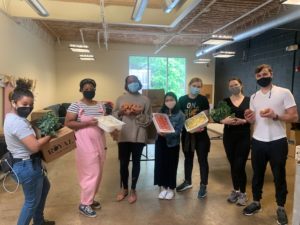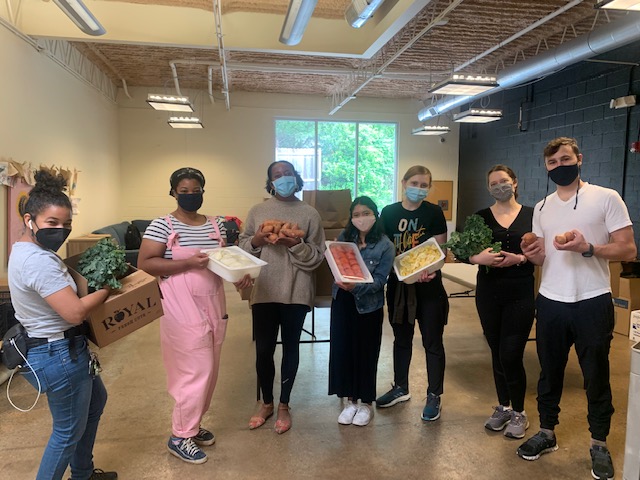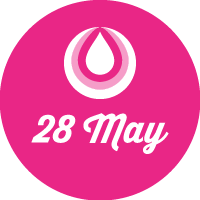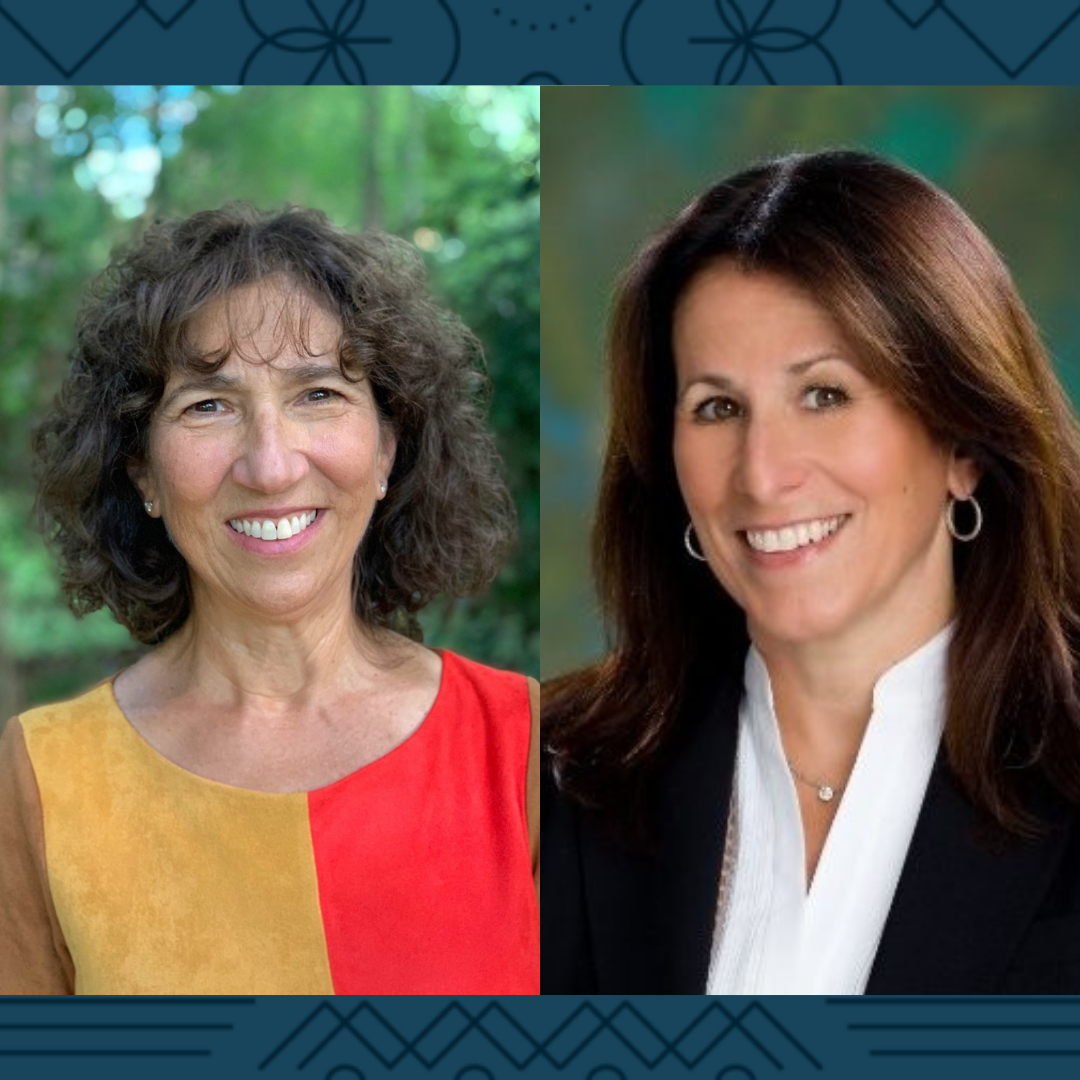![]()
 With the understanding that the pandemic has disproportionately impacted our cities, Repair the World Atlanta launched a local cohort of Serve the Moment last fall. It offers a ten-week opportunity with a stipend for young adults to engage in critical racial justice work, tackle food insecurity, strengthen our education system, and combat social isolation, alongside contextual and Jewish learning. We’re honored to share reflections from two members of the Serve the Moment Corps, Justine Stiftel and Grace Parker, who were clearly changed and challenged during their service in Atlanta this spring.
With the understanding that the pandemic has disproportionately impacted our cities, Repair the World Atlanta launched a local cohort of Serve the Moment last fall. It offers a ten-week opportunity with a stipend for young adults to engage in critical racial justice work, tackle food insecurity, strengthen our education system, and combat social isolation, alongside contextual and Jewish learning. We’re honored to share reflections from two members of the Serve the Moment Corps, Justine Stiftel and Grace Parker, who were clearly changed and challenged during their service in Atlanta this spring.
A fall cohort of Serve the Moment will soon be recruiting new members. To be put on the email list for the Fall 2021 application, please email servethemoment@werepair.org
Justine Stiftel (They/Them):
“You are not obligated to complete the work, but neither are you free to desist from it,” the famed quote from Pirkei Avot (The Ethics of the Fathers), came up frequently during my time as a Serve the Moment Corps Member through Repair the World. Indeed, the twenty young adults in our spring cohort could never have finished our work responding to the lasting economic and social effects of the pandemic. Nonetheless, we made plenty of headway repairing our communities and strengthening our connections to Judaism.
I had the pleasure of being partnered with Second Helpings Atlanta, a non-profit redistributing surplus food to those in need. I revised and evaluated their contact system, improving communications with their food donors, partner agencies, and volunteers. I learned the serious impact that the pandemic had on food access in our city. Thirty to forty percent of the food produced in America ends up in landfills, while one in five children in Atlanta is food insecure. It was an honor to contribute to fixing this disconnect.
At our cohort’s weekly calls, we reflected on our experiences with our different non-profits. We heard from Jewish leaders and non-profits across the metro, expanding our knowledge of the needs of the most vulnerable populations. As the program lined up with the seven weeks of the Omer, we often connected with the seven lower sefirot.
In 10 meaningful weeks, Serve the Moment has enabled me to learn about my city, my career goals, and my Judaism.
Grace Parker (She/Her):
If there’s one thing that I learned from this past year it is that even in the toughest of times, there is always a silver lining. For me, that silver lining has been my experience with Repair the World’s Serve the Moment program and my partner organization, Concrete Jungle, a local nonprofit working to address food insecurity. Through Serve the Moment, I was able to dedicate the extra time on my hands toward meaningful and impactful work during a period that felt overwhelmingly helpless and hopeless for so many, myself included.
Having just moved to Atlanta during the pandemic, I was also able to connect to my newfound community in a truly special way — meeting new people, seeing new places, and taking part in conversations I would not have been exposed to otherwise. I feel incredibly grateful for this program and the countless lessons it has granted me, from lessons in empathy to a deeper connection with Jewish community service to fresh perspectives on rectifying the injustices our world faces now more than ever. I did this program to serve others, but ultimately, with each smiling face receiving their weekly nutritious groceries, I was given the greatest gift of all.

 We are excited to share that Jewish Federation of Greater Atlanta and JF&CS have become KAVOD SHEF initiative partners. The additional KAVOD SHEF funding will help meet the needs of survivors in Georgia and the Southeast region primarily for home care needs. It will be administered by JF&CS and will supplement Claims Conference funding and the impactful work of the Holocaust Survivor Support Fund (HSSF) improving the lives of survivors who need assistance.
We are excited to share that Jewish Federation of Greater Atlanta and JF&CS have become KAVOD SHEF initiative partners. The additional KAVOD SHEF funding will help meet the needs of survivors in Georgia and the Southeast region primarily for home care needs. It will be administered by JF&CS and will supplement Claims Conference funding and the impactful work of the Holocaust Survivor Support Fund (HSSF) improving the lives of survivors who need assistance.

 With the understanding that the pandemic has disproportionately impacted our cities,
With the understanding that the pandemic has disproportionately impacted our cities, 

 Lana
Lana 




 Federation
Federation


